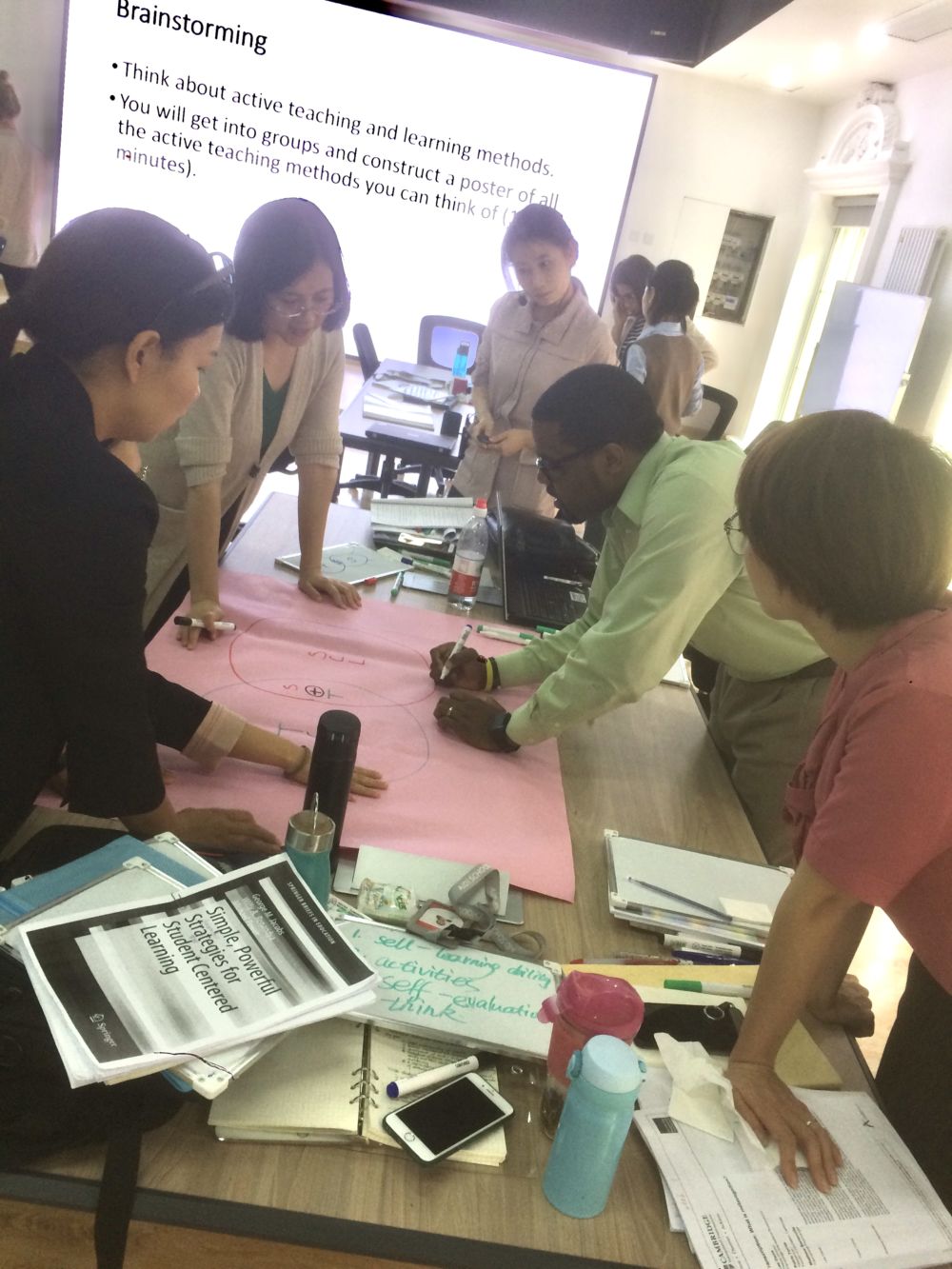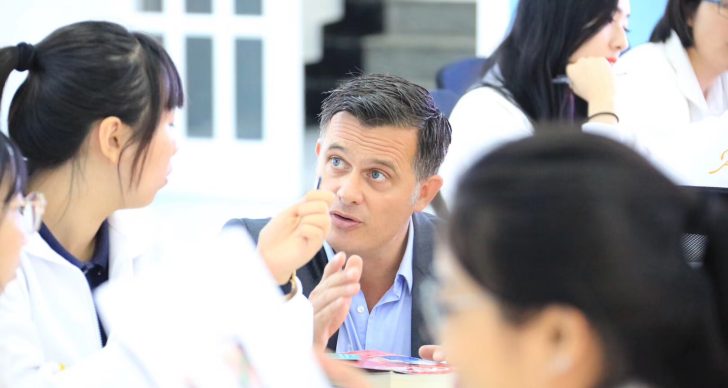We asked Paul Keatley, Headmaster at Beijing Aidi School, China, and Russell Hazard, Professional Development Qualification Programme Leader and Director of Teaching, Learning, & Innovation at Aidi School, about their experiences.
How long have you been running the Cambridge Professional Development Qualification (PDQ) programme in your school, and why did you introduce it?
Paul Keatley (PK): We’ve been using the Cambridge PDQ programme at Aidi since 2017. As Headmaster, I wanted to increase the amount of training available to our teachers, enabling them to improve their knowledge and skills, and hopefully provide them with opportunities to progress in their careers.
We decided to use the Cambridge PDQ for three main reasons; the first is that it is a well-known qualification, meaning that teachers would see value in participating, as well as being able to use the qualification to link into further, higher-level qualifications in the future.
The second is that the Cambridge PDQ programme is customisable to fit our specific training needs. This was a must for our school – our slogan is ‘Tailor your future’, so we always strive to move beyond generic, one-size-fits-all approaches and create an education experience that is tailored to the user to generate maximum benefit.
The third is that the system is available at multiple levels and subject areas. This allowed us to put together a comprehensive, high-quality, tailored training system in a relatively short space of time.
How does the programme fit into your vision for the school’s development?
PK: Our vision is to create a successful school that blends the best of Eastern and Western education philosophy and practice. In reality, this can be challenging, especially with staff coming from different countries and cultures.
The Cambridge PDQ programme allows us to ensure that teachers have a common knowledge base on which to discuss ideas and techniques, as well as a solid understanding of expected pedagogy.
Russell Hazard (RH): As Programme Leader, the Cambridge PDQ programme has allowed me to link lots of diverse educational concepts, while adapting it to the needs of the school. This has enabled me to bring together different areas of educational literature and practice into a cohesive programme.
How do you expect the Cambridge PDQ to benefit your school?
PK: Providing teachers with high-quality and regular training helps to improve and maintain quality standards. It makes staff adaptable, allowing them to switch to new curriculums, teaching methods and pedagogy more easily if the need arises. It also helps with staff retention and career progression.

RH: One of the most important benefits I’ve experienced has been to see how our community of teachers has developed. The school community has come together in a positive way and it’s fantastic to be a part of it.
Also, the programme has helped teachers and administrators learn a common ‘language of pedagogy’ so we’re better at discussing problems and solving them as a team.
The reflective component has helped to foster an understanding that there are multiple approaches to teaching and that we all have a great deal to learn. This has improved the function of our departments, and is a sign of a really progressive school that we can be proud of.
What impacts have you noticed since teachers started participating in the programme and how have you been able to evaluate its success?
PK: It’s still early days for us, but I have seen positive signs from class observations. Also, in meetings and general discussions with teachers, it is nice to hear the concepts and practices taught in the training being put into everyday use.
RH: From discussions with teachers, observations, and successful results on assessments, we can confidently say we’re achieving our objectives at an introductory to intermediate level. However, mastery will take time.
What has the feedback been from teachers who have completed the programme?
PK: The feedback has been overwhelmingly positive. Our programmes run for three to four months and require extensive reading, research and practice. Many find the workload challenging, but almost all see the benefits in terms of increased knowledge and practical improvements. We have also noticed a desire for further/continuation training from teachers, indicating that the programme is helping to further inspire pedagogical improvement.
RH: The PDQs are challenging and involve a lot of work when done properly. However, the reputation of the programme is so strong that teachers are keen to do it despite the extra work it will bring.
How are you planning to develop the Cambridge PDQ programme in the future?
PK: We recently introduced Diploma level PDQ programmes, allowing teachers who have taken the certificate level training a natural progression. However, the Diploma is not suitable for all teachers, so we’re planning to broaden our certificate level offerings. This will give our teachers the choice of both breadth and depth in their training and career development.
RH: We run our programme with teachers from every department and grade level. This helps foster better interdepartmental understanding and smoother grade progressions. In the future, we may put in place a system to look more systematically at which teachers or departments need extra support.
The PDQ leadership course is high quality, the support materials are excellent, and the ongoing support from Cambridge International has been very good. Feedback from participants has helped us to better prepare the candidates for success each time we run a new cohort.

Mr. Paul Keatley, M.Ed is Headmaster of Beijing Aidi School and Director of the Academic Quality and Examination Council. He is a dedicated and experienced educator, trainer and leader with 15+ years experience in Chinese education, both in the private and public sector. Paul specialises in performance management for education and is a passionate believer in the benefits of international education and the development of global citizens.

Russell Hazard leads the Aidi Teaching, Learning, and Innovation Centre in Beijing. In that capacity, he engages in educational research, and leads the Cambridge Professional Development Qualifications centre. He implements EdTech and blended learning, and has designed a sustainable STEAM Innovation Lab for Project Based Learning. Specific areas of his research include 21st Century education, digital literacy/citizenship, Education for Sustainable Development, and language and literacy studies as a vehicle for student empowerment and national development.





